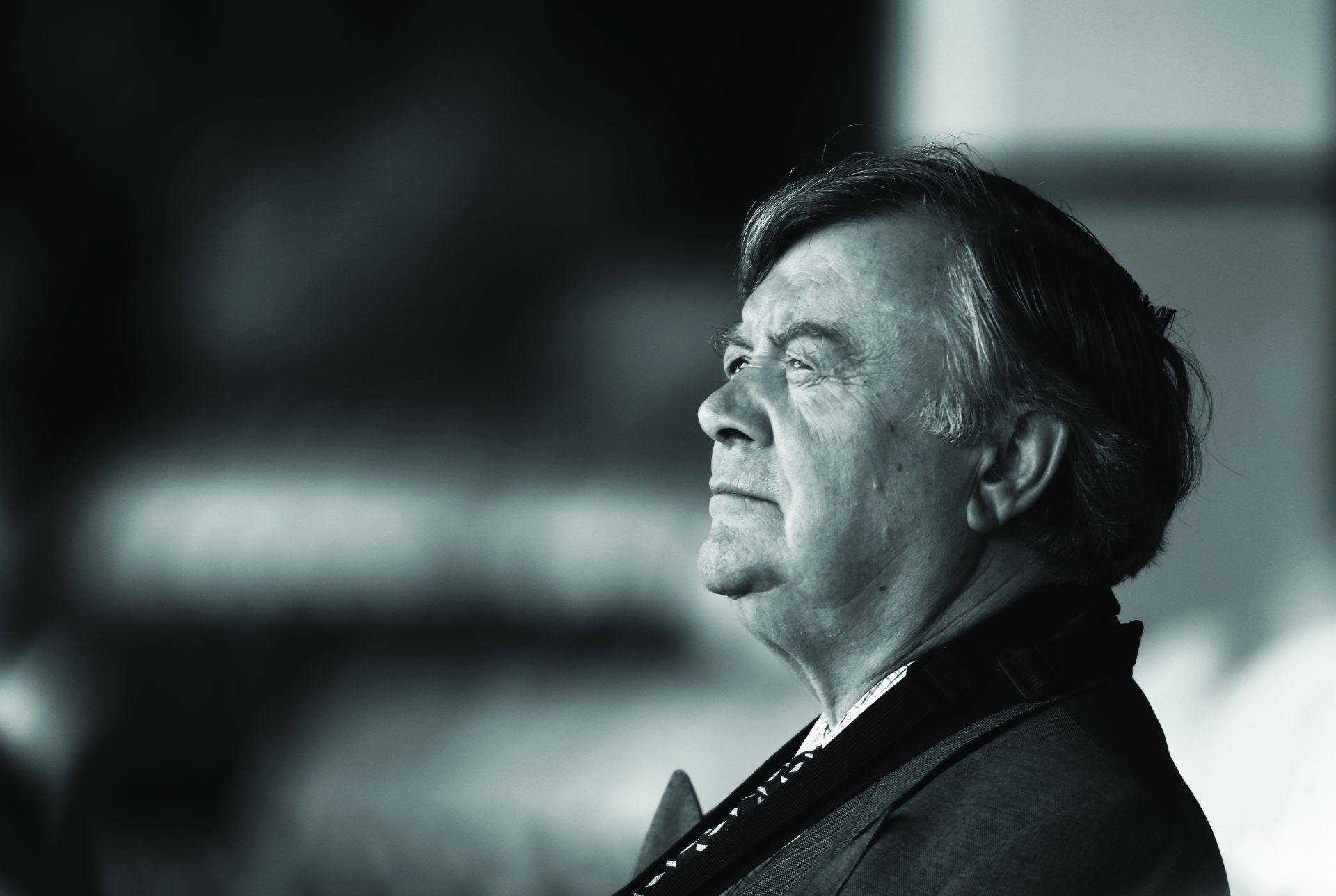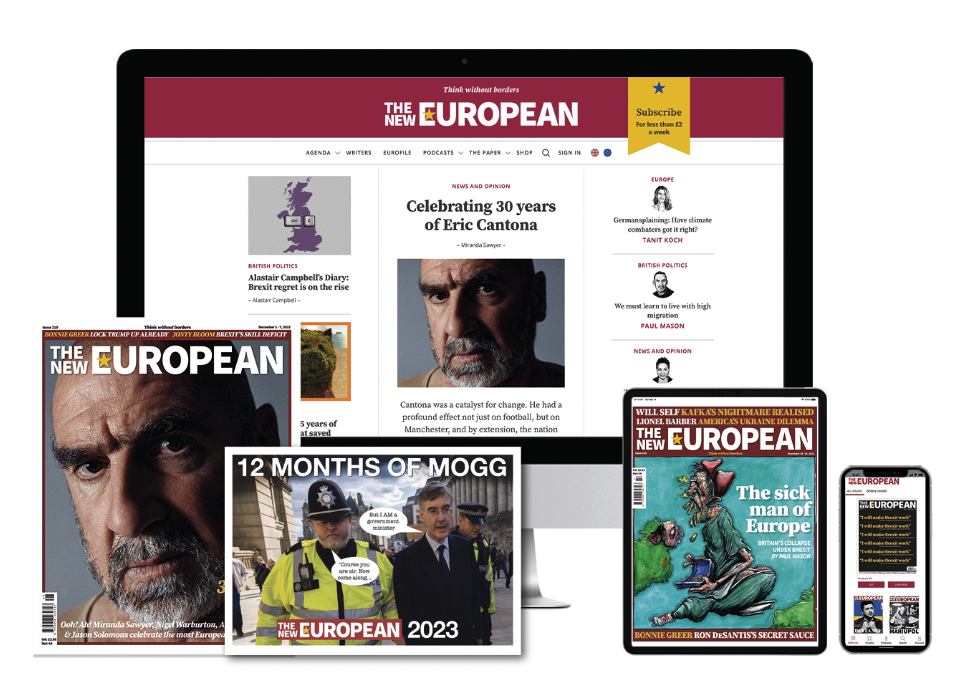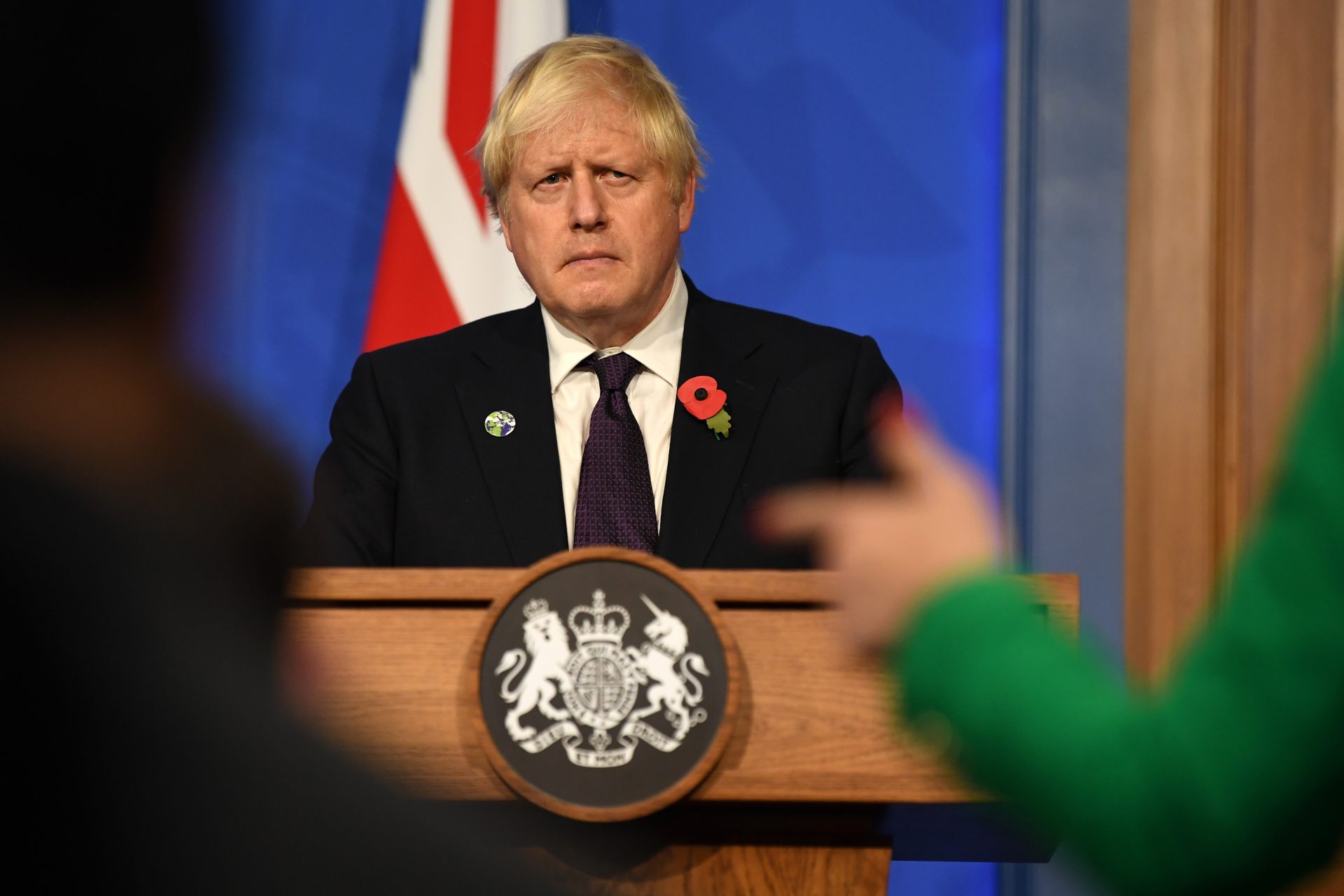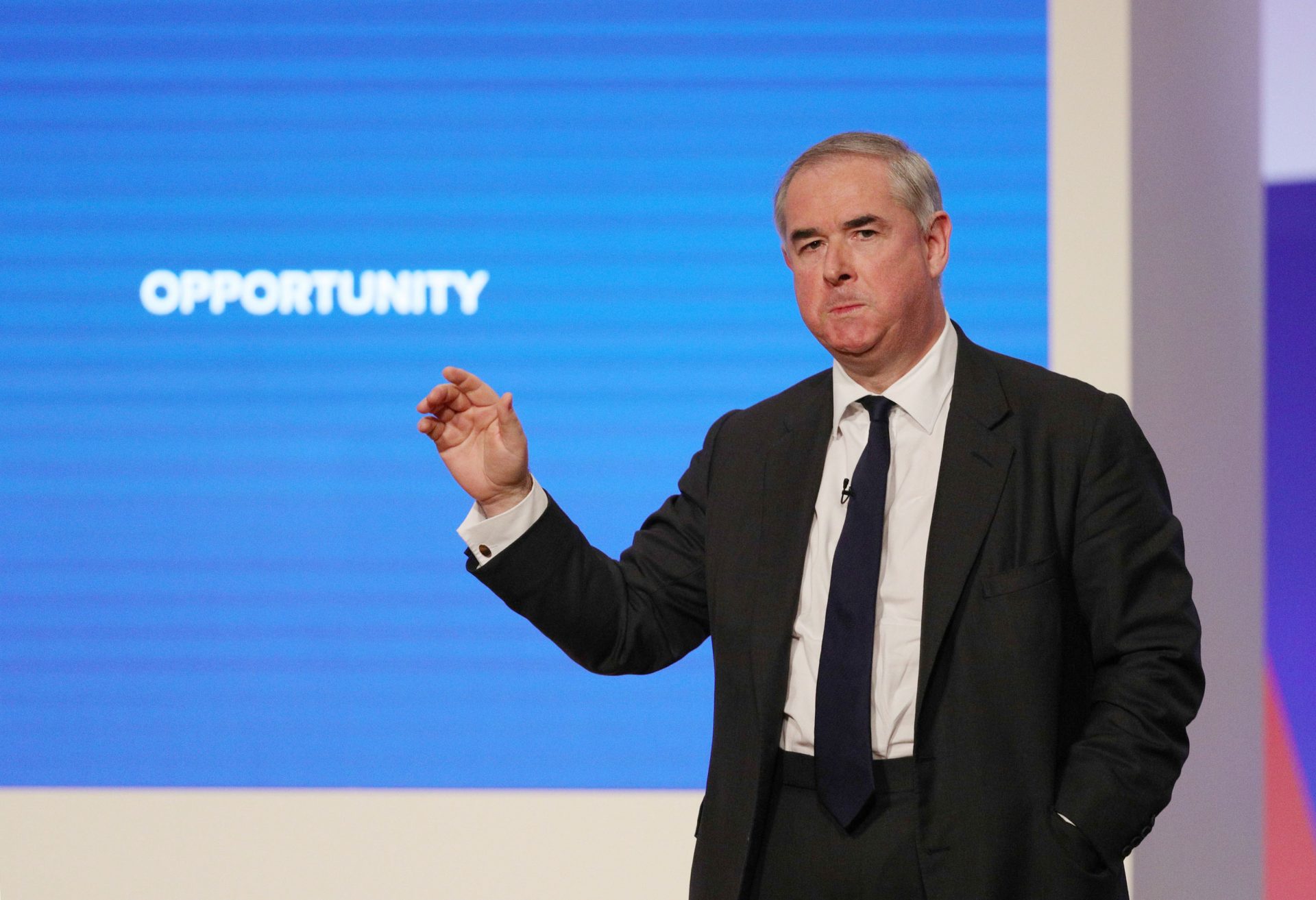Lord Clarke of Nottingham – better known as Ken Clarke – describes himself as “a sad and slightly disillusioned old politician.” The great One Nation Conservative may now be 81, but, as we chat in his unshowy pied-à-terre in south London, it’s clear the political antenna is as finely tuned as ever. Clarke knows only too well that so much of the progress that has been made during his lifetime is now being wilfully abandoned.
“In my early days I was a whip charged with getting the European Communities Bill through the Commons,” he recalls. “I had to negotiate with Roy Jenkins and his followers on the Labour benches and they were soon among my greatest allies. My most implacable opponents were Michael Foot and Enoch Powell. We won the day because the likes of Enoch were then in the minority.
“Now that position is reversed. Immigration was, of course, the issue that his modern followers exploited during the referendum campaign. I considered myself to be in the mainstream of the party, and am not pleased that people who think like me – internationalist, outward-looking, progressive – have been marginalised. The party is now more right wing and nationalist than at any time in my lifetime.”
I ask if he believes that “Global Britain” can be made to work and the man who has held two of the great offices of state – home secretary and chancellor of the exchequer – laughs ruefully. “That is just a slogan, an excuse to for spending money on a royal yacht, and flying the flag in odd places. We have to get used to our reduced role in the world. We should now be minimalising as much as possible the damage that has ensued from what was a very bad decision.”
Clarke is referring, of course, to Brexit, which, as he points out, is not “done,” and is unlikely to be “done” any time soon. “A lot more negotiation needs to take place in a civilised and sensible atmosphere, the present atmosphere is farcically acrimonious. On our side, the domestic politics is making it very difficult. Boris made a dreadful deal, but people voted for it because at that point they just wanted any deal. They weren’t prepared, for instance, for the problems in relation to the Irish border.
“There is a serious danger of the Good Friday Agreement and power-sharing collapsing and heading back to direct rule.
“Our government wants to tear up the whole agreement it signed up to with Europe and are trying to find a way of doing so in a way that they can blame on the French. I only hope that they have got experts working behind the scenes on an alternative plan. A lot of what is being said at the moment is laughable.
“They are currently talking about giving up on the science and research projects we have, such as Horizon. Most members of the public have never heard of them, but they are of huge importance to the scientific community. We have already given up on the policing and security co-operation. I had assumed the police and security services would in practice ignore the fact we’re no longer signed up to the Schengen information-sharing agreement, but I was horrified to discover we are no longer getting the information on terrorism and crime and we are not sharing what we know. We are no longer in Europol.
“No one voted for these things. A lot of Brexiters thought we should never leave the single market, of which Margaret Thatcher’s government was the architect. It was only supposed to have been about getting out of political Europe.”
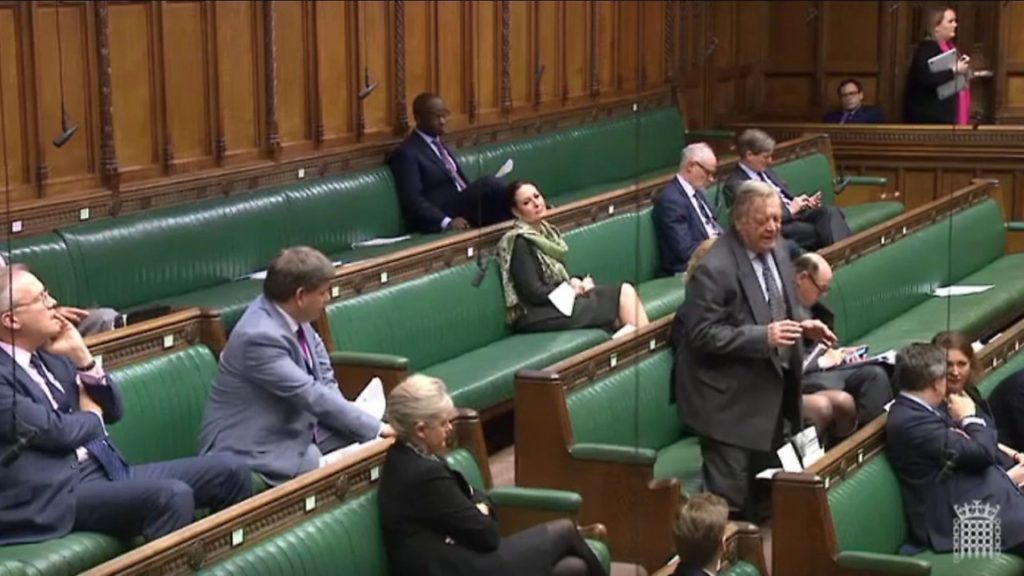
While the travails of the United Kingdom are unique and self-inflicted, Clarke says it is important to see them as part of a worldwide phenomenon. “What appears to be happening is that the global economy is coming apart, there is a revival of nationalism and protectionism around the world, and the rules-based international order, which politicians of my generation joyfully believed we were getting close to achieving in the 1990s and early 2000s, is now suffering a dreadful setback.
“Parliamentary democracy is not working as it used to in North America and Western Europe. Portugal and the Netherlands are finding it difficult to put credible governments together. There are some Eastern European countries in trouble, too. There are a lot of factors that have brought this about. Modern media and communications are among them.
“The pace of change in the modern world seems to accelerate all the time and wide sections of society, being hurt by that change, resent it and can’t understand it, and there is an increasing yearning for colourful theatrical personalities with simple solutions to complex problems. These individuals offer up scape-goats and easy ways out that save people from having to engage with the complexities of a very confusing and changing world.
“Angry protest has consumed every Western democracy. Angela Merkel leaving office in Germany brings to an end one of the last links we have to the days of stable government and order.
“We find ourselves adrift at the worst possible time and are quarrelling with the European Union when our strategic interests are identical. We should be looking particularly at the threat from Russia. We have also managed to go back in time in our relationship with America to the point where we are again no more than a satellite state of the United States, when it’s more unpredictable, isolationist and obsessed with its internal politics than it has been for some time.
“The shambolic withdrawal from Afghanistan was a symbol of the decline of the West. We are no more than a minor part of a declining military and political alliance.”
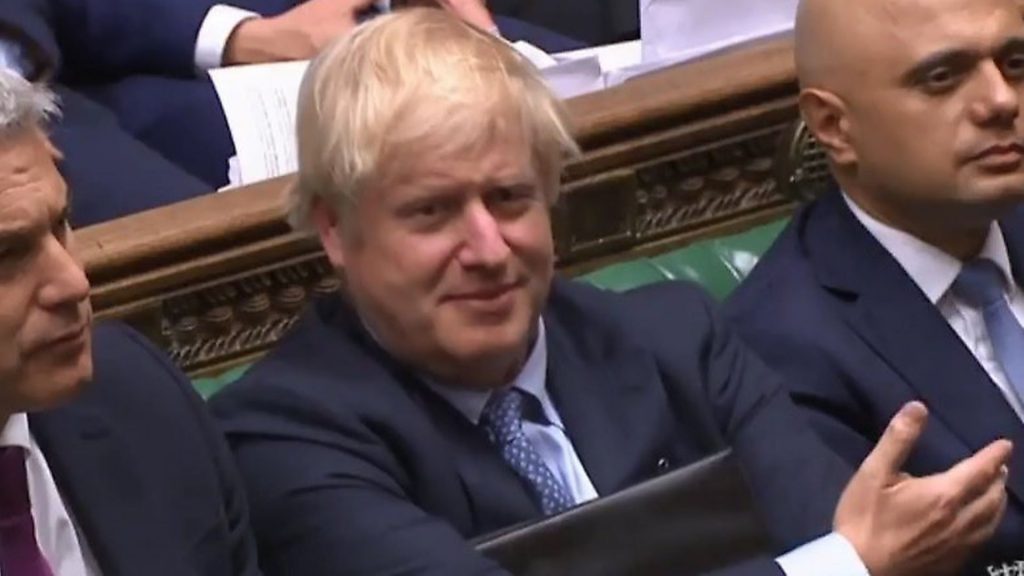
Clarke says that “the cussedness of fate” meant that leaving the EU coincided with the pandemic, making it hard initially to determine what had caused the most damage. It’s now clear from the Office for Budget Responsibility, he adds, that Brexit will be responsible for the greatest long-term scarring, with GDP being set back by around 4%, twice the impact of the pandemic.
Clarke is at pains not to criticise Boris Johnson personally for what is happening – he professes to be on good terms with him, as he is with many of his political opponents – but he recognises that the policy the prime minister championed has been disastrous. He wonders, too, if the country can even begin to find a new role on the world stage until it first puts its own house in order.
“We have relied for too long on a Victorian ideal of what we used to call decent chaps doing the right thing to keep our constitutional principles intact. We have got to the point where we need a serious written constitution. We need to restore the strengths of the Commons and the Lords by putting their powers into statutory reforms. We are at the absurd point where it is up to the government whether extremely contentious pieces of legislation get to be debated at all.
“Boris is showing signs of being extremely impatient in regard to the constitutional constraints upon him. He gets angry if the courts or parliament try to interfere. As the elected prime minister, he thinks he should not be impeded in these ways. We are now getting dangerously close to the “elected dictatorship” that Lord Hailsham, the former Lord Chancellor, warned us about half a century ago. He quite rightly identified it as the underlying risk of a totally unwritten constitution.
“Fortunately our Supreme Court has been prepared to step in and defend some basic constitutional principles. That enraged the government which threatened to take away the court’s power, and tried to get through a bill that allowed them to break international and domestic law so far as the Brexit deal with the EU is concerned.”
Clarke was one of the members of the Upper House who managed to thwart the government’s attempt to get its Internal Market Bill passed, which would have enabled Johnson to overrule the Withdrawal Agreement he struck with the EU and allow ministers to break international law. “That was,” he says modestly, “one of the few days in the Lords I felt I had performed a useful function.”
I ask him if he feels the government handled the Owen Paterson lobbying scandal well and he chortles. “That is obviously a sarcastic question. I have sat with Owen in Cabinet, and, while he is a lot more right wing than I am, he is a nice, sensible guy. How he thought he could lobby ministers on behalf of people paying him is, however, beyond me. You don’t need a rule book to tell you that’s not acceptable.
“Had he apologised, I think he would have got away with 30 days’ suspension. That is not what he did, then Boris attempted to shut down the standards committee – all in defiance of liberal democratic principles.
“We would have disapproved of any other Western democratic leader behaving like that.”
Clarke reckons there is nothing wrong with the current rules that parliamentarians are expected to adhere to, but believes the independent bodies enforcing them need to be given more power and the prime minister of the day should not be permitted to disregard them.
He also believes it’s time the “long-standing tradition of selling peerages” be brought to an end.
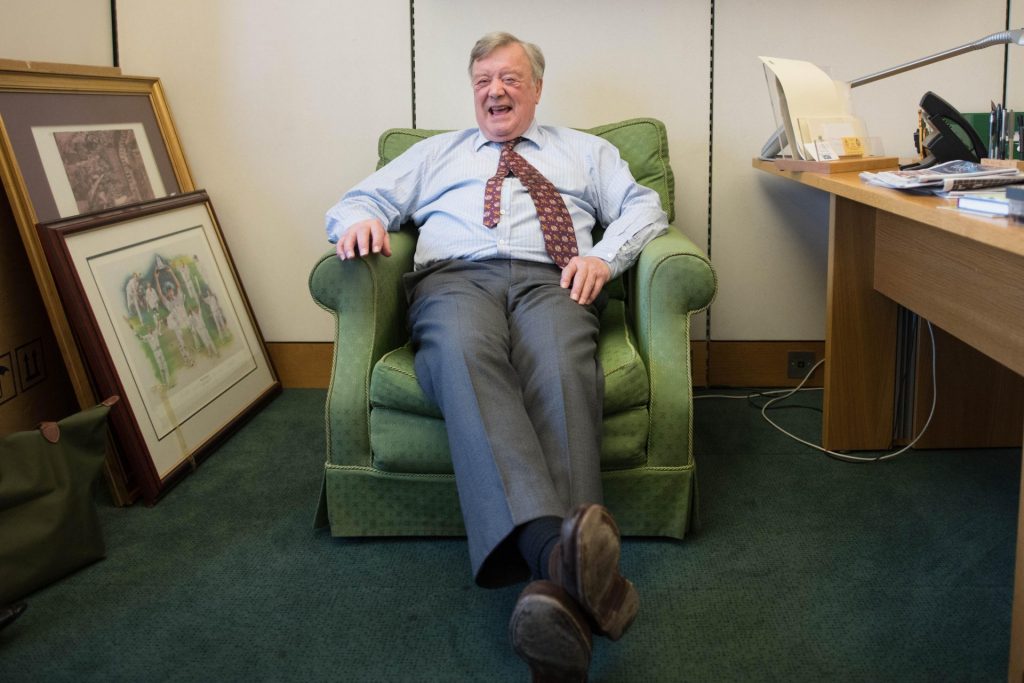
He will not get into speculation about whether Johnson will lead his party into the next election or who might succeed him but he regards chancellor Rishi Sunak as a “frighteningly intelligent” man.
There was criticism that his was not a Conservative budget, but Clarke says that in the position he was in, Sunak did reasonably well. “Maybe part of the deal he came to was getting the bad news out first, so that on the day he could position it as a giveaway budget, which it was not. The economic problems we have are not going to sort themselves out by Christmas.
“While Rishi was popular when he was dishing out money, he must know his approval ratings will depend heavily on him explaining himself carefully as he cuts back.”
Clarke’s erstwhile parliamentary colleagues such as Dominic Grieve and Anna Soubry have lamented how the Tory Party they joined no longer exists and Clarke feels their loss has been keenly felt. “I can see that traditional Tories are quite upset by the style of the government. Moderate Tories are upset by right-wing nationalism. This was spectacularly shown in the Chesham and Amersham by-election. That, in my view, was as significant as the Orpington by-election of 1962, which was seen as a big protest vote against the Conservative government of the day.
“Boris should be aware that the so-called red wall seats [are] not a permanent shift of support to the Conservatives. It was an angry anti-establishment vote, first shown in the Brexit vote, then for him at the 2019 election. Tribal voting is pretty much dead. There is widespread discontent about the government in unlikely places, such as the home counties and the south.”
Clarke says a lot of the problems with our politics is the drift towards a more presidential and centralised system that has culminated in a sense that all decisions are taken by Johnson, surrounded by special advisers who are too mindful of how they will play in the newspapers.
“Margaret Thatcher always had very full Cabinet discussions. She didn’t always get her way and was prone to take defeat badly, but she accepted it. Cabinet ministers were allowed greater autonomy. “That was a better system, it allowed us as to think longer-term. I was opposed to the Iraq war, for instance, and thought, given the trouble I was in over my support for the EU and how popular the war was initially with the public, I was risking my career, But a year down the line, you couldn’t find anyone who admitted even knowing anyone who supported that war.”
Clarke never believed Remainers could win a “People’s Vote”and backed Theresa May’s Brexit deal because he feared what might come along instead. He realised the fight was over when he became the only Tory MP voting against Article 50 – the trigger to begin the process of leaving the EU.
He likes Keir Starmer but doesn’t see any serious opposition to the Conservatives. “He is a lawyer who is also a politician, whereas I always liked to think of myself as the opposite.” Nor does he seen any hope of the UK rejoining the EU soon, and his famous prediction that the country might soon stray into Alice in Wonderland territory has come to pass.
“That’s about where we are now. Anyone making predictions about what [happens] next is ill-advised. Nothing can surprise me anymore.”
Hear Tim Walker discuss this interview on the latest New European podcast. Subscribe here.


